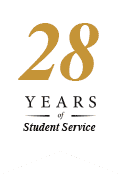 Summary: Interviewing is the key opportunity to get off to the right step when looking at a potential job. It doesn’t matter if you’re apply to be a Pharmacy Technician or a Medical Assistant, the interview process is the most crucial step in factoring out your fit for a job. Here are some tips that will help you learn more about the dos and don’ts of interviewing for jobs in the medical field.
Summary: Interviewing is the key opportunity to get off to the right step when looking at a potential job. It doesn’t matter if you’re apply to be a Pharmacy Technician or a Medical Assistant, the interview process is the most crucial step in factoring out your fit for a job. Here are some tips that will help you learn more about the dos and don’ts of interviewing for jobs in the medical field.
Research the potential employer, know the interview process for the job you are applying for, have solid references ready for the interviewer, know where you are going and plan for adequate travel time, plan your attire appropriately for the job, go over what questions they may ask and what your best responses to those questions could be, prepare to sell them on your strengths and sell away from your weaknesses, and create a list of questions to ask the interviewer as well.
All of these elements help make an interview a successful one so make sure to go over these tips in detail, plan, and prepare. The interview process can be the most nervous time for many interviewees, so breathe and get off to the right step with these tips.
Original Article: Before You Interview for a Medical Job: Job Interview Tips for Medical Job Seekers
by Andrea Santiago
One of the most critical stages of the job search process is the interview. Whether you’re interviewing for an entry level, hourly wage job, a high-paying hospital executive role, or a clinical role such as nursing or physician jobs, below are a few key steps you can take to assure that you’re prepared for your interview.
Thorough preparation prior to your job interview will help ensure your success in getting the offer, or at least getting to the next step of the job interview process. An interview is a sales presentation, and the product is you.
Research the Potential Employer
Do your homework about your potential employer. This can include internet research and word-of-mouth. If you know someone who works there, spend a few minutes discussing their experience and observations of the company, including corporate culture, values, and any recent business developments. If you don’t know someone who works at the company, try to network your way to a direct connection with someone who does.
If you’re interviewing for a hospital job, research its financial stability, and potential growth. Also, what is the reputation of the hospital in the general community and the medical community?
Know the Interview Process for the Position You Want
Knowing the interview process is important not only for your success, but also for your peace of mind during the interview process. If you know what to expect, you’ll be able to more easily gauge the potential employer’s interest level in you as a candidate. Ask the recruiter how many interviews are involved, who are the decision makers at each step of the interview, and what is the anticipated time-frame for hiring and on-boarding someone for this role.
If you’re aware that the interview process is two interviews, or five, you won’t be alarmed when you don’t receive an offer after the first interview, for example.
Have Solid References Ready
Now that you know what to expect in the interview process, you know when to expect the background check and referencing stage. You should have a minimum of three professional references, including direct supervisors from your current and most recent jobs. (It is acceptable to ask that your current employer not be contacted until you’ve received an offer.) You should have the name, title, dates and company where you worked for this person, and contact numbers and email address of each person who is on your reference list. Ideally, you should be aware of what these references are going to say about you as well.
Plan Your Route and Know Where You’re Going
Confirm the time and location of the interview the day before. Managers can get busy or pulled into last minute meetings, so be sure everyone is on the same page and planning to meet at the originally designated time.
If possible, drive by the interview location to be sure you know how to get there. If this isn’t possible, allow extra drive time on the way to your interview in case you get turned around or miss a turn.
Plan Your Attire
You should be dressed professionally for an interview. This is going to vary based on the type of position for which you’re applying. However, you can never go wrong with a business suit in a conservative color. A few days before your interview, select your attire and be sure it has been cleaned and pressed and you’re ready to shine! This gives you time to make a run to the drycleaners, or to make any repairs (hems, buttons, etc) or purchase missing accessories if needed.
Anticipate Job Interview Questions and Rehearse Your Best Answers
This is one of the most important things you can do prior to your interview. Most interview questions, although worded differently, seek to identify the same basic traits:
What can you contribute to the organization?
How well do you work with others and get along as part of a team?
Why should we hire you over the other candidates?
Why do you want to work here and would you be motivated to stay here?
You need to show (not tell) the interviewer that you can efficiently and effectively do your job. You can illustrate by sharing past accomplishments and achievements: quantifiable, verifiable contributions to the bottom line.
Prepare to Sell Your Strengths and Sell Around Your Weaknesses
Put together a list of specific examples of how you have improved your current and previous employers’ organizations by increasing revenue, decreasing operating costs, or a combination of both. Know your strengths and be able to sell them; know your weaknesses and be able to sell around them. How can you improve on weaker areas? How do your strengths compensate for any weak areas?
Be prepared to succintly describe two or more significant contributions you made to each employer, particularly the action you took that impacted the bottom-line of your employer. You can work these examples into multiple interview answers.
Prepare a List of Intelligent Questions for the Interviewer
The questions you ask in an interview also say a lot about you as a candidate. Therefore, your questions should focus on professional development, long-term goals for the role, and company initiatives. This is not the time to pick apart the work schedule, compensation plan, or vacation allowance. Ask questions that show the interviewer that you’ve researched the company. For example: “I saw on your website that (insert factoid here)…How do you think that will impact long-term growth?”
Okay, you’re ready to go get that job offer! Print a few extra copies of your CV, (or resume’) grab your notebook, portfolio, and go!
Source:Before You Interview for a Medical Job: Job Interview Tips for Medical Job Seekers
Disclaimer: This article was shared for informational purposes only. ACHT is not responsible for any claims, advice or errors that might exist in the articles. third party websites or analyses presented.



